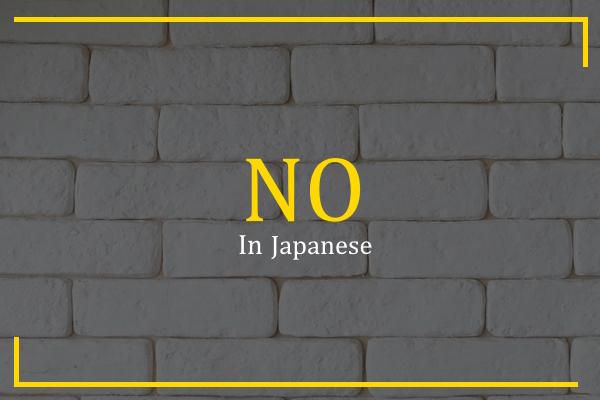Table of Contents
The art of saying no in Japanese can be challenging. Japanese people are rarely frank with their answers, preferring to give indirect answers that convey their message instead. Those who value harmony as a way to keep all peace in a society think directly opposing these notions is too disruptive. It is because of this fact, that the Japanese will generally choose their words carefully, especially when it comes to discussing business matters.
No in Japanese: いいえ (Īe)
Basic word for No
The word “no” will make its way into both Hiragana and Katakana when you learn Japanese. As you probably know, it is written in Hiragana as の one and in Katakana as ノ. If you see these characters, they represent the sound “no” and not to take as some form of disagreement.
In Japanese, say “No” politely
Although “no” is the word you can use in Japanese as “いいえ (Īe),” when it comes down to actually refusing something or someone, it requires more thought and planning than you might think. In addition to all of this, it is actually very rare to see the word “no” mentioned at all.
It is true that the best way of rejecting something or someone depends largely on the situation and the other party involved. However, there are certain phrases or key words that convey “no” in a clear and concise manner. This article briefly describes how to say no firmly without being rude no matter what the situation may be.
Just say no
Although, there are a lot of words for no in different languages. In Japanese, directly saying “no” is rarely necessary; however, if a partner keeps pushing and prodding you, it is sometimes necessary to be direct in order to make your point clear.
Muri
I would recommend you use ‘muri’ whenever you are talking to a friend or colleague to mean “no, you can’t do it”. This can be translated as “it is impossible”. You should be careful when using this as a “brief” and “blunt” answer.
Adding “desu” makes this a more formal way of saying no in Japanese. Therefore, “muri desu”, then explain why.

Arslan Hussain, founder of The Different Languages, is an experienced translator passionate about languages and cultures. Through his website, he shares his knowledge and love for different languages, making learning accessible and enjoyable.

